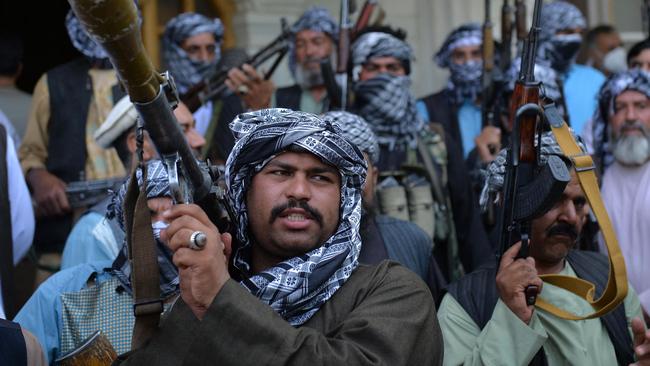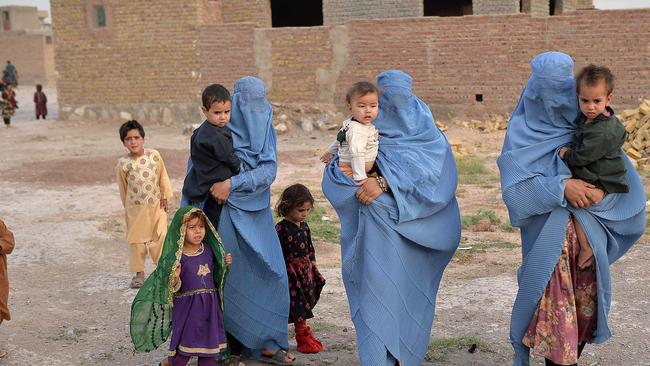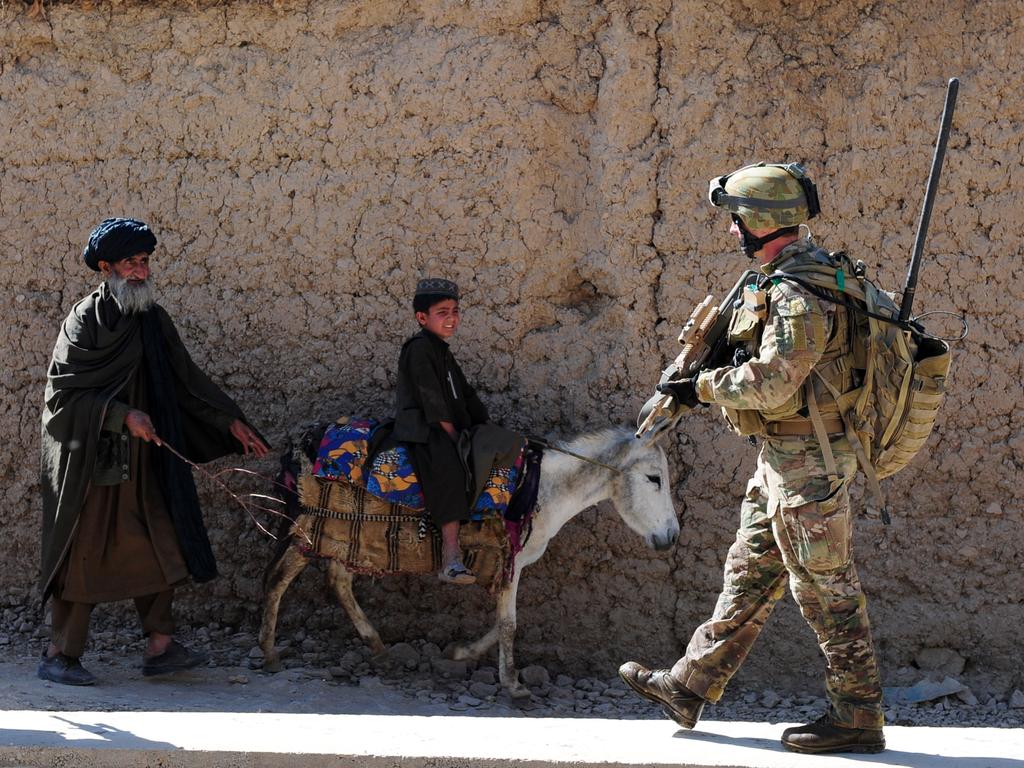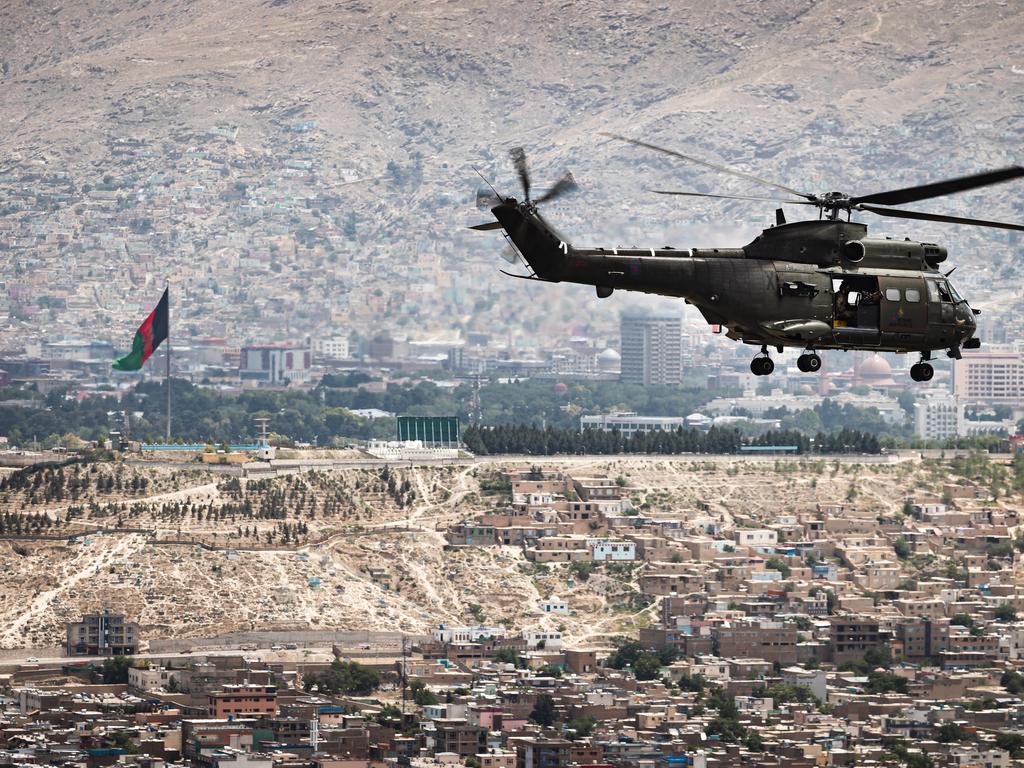Afghanistan peace talks ‘just a mirage’ as panic sets in
The official line is of peace talks and power-sharing - but panic has set in as Taliban sweeps through a part of the country it has never controlled.

The WhatsApp messages come night and day, including one just as the English football team scored the goal taking it to Sunday’s European Championship final. “So sorry to disturb, but please help me and my family ...”
An Afghan midwife whose maternity hospital was attacked last year with mothers and babies slaughtered, the son of a female judge who was shot dead, a female MP, a radio presenter in Jalalabad, one of the country’s first rappers – all the people I have got to know in 33 years of writing about the country where I started my career. A country that has been as much a part of my life as my homeland.
I wrote about them because they were trying to make a difference, but now the very act of trying to make their country a better place has made them targets.
They send me testimonies, often written by foreigners; I contact embassies, knowing it will go nowhere.
Anyone who can is leaving Afghanistan. At the second-hand market in Kabul the pavement is covered in carpets, kitchenware and gilded birdcages – families selling all their worldly goods to raise the money to flee.
As the Taliban sweeps through the western province of Herat and into the north, the one part of the country it has never controlled, Afghan troops flee or tactically withdraw. Panic has set in.
Seeing the warlords of old re-arming to take on the Taliban is hardly reassuring when many blame them for the descent into war that facilitated the insurgents’ takeover in the 1990s.
Amid the precipitous withdrawal of foreign troops, the Afghan government has been silent. It seems to have no plan, as if it somehow thought the US would change its mind about leaving.
On Thursday, US President Joe Biden defended what appears to be the abandonment of 40 million people and denied that a Taliban takeover was inevitable. But his talk of Afghan security forces and “over-the-horizon capability” comforts no one.
“The fact they are only really interested in guarding the airport speaks volumes,” a senior Afghan government official said. There was fury when the Americans left Bagram airbase without warning last week and put the electricity on a timer to go off 20 minutes after the last plane departed.
“There is a real sense of foreboding,” says Kate Clark, director of the Afghanistan Analysts Network, which has monitored the fall of more than a third of the country’s districts to the Taliban since May. The Taliban now claims to control 85 per cent of the country, including key border crossings with Iran and Turkmenistan, although it has yet to capture any significant towns.

Meanwhile, 2000km away in the Qatari capital of Doha dozens of Taliban and Afghan government representatives staying in the five-star Ritz Carlton are supposed to be trying to find a peaceful solution to 40 years of war. The talks, which started last September following a deal on the troop withdrawal between the Taliban and the Trump administration, are meant to come up with an accord whereby the insurgents lay down their arms and participate in a redesigned political system.
Biden last week repeatedly put the onus for what happens next on “the Afghan people” and the government in Kabul, which he urged to “come together” to find a way to share power with the Taliban. But with the insurgents gaining more and more territory, those tasked with negotiating peace say it has turned into a farce.
“We see no urgency among the Taliban,” senior negotiator Nader Nadery said. “They just want to keep this process half-alive as a lever to gain international legitimacy. They are not serious.”
The Taliban insists it is committed to peace but did not turn up for a second round of talks in January, then refused later to go to Turkey for UN-sponsored talks. It rarely turns up for meetings in Doha – “and then they refuse to talk about real issues”, said Nadery, who blames the US for not using the leverage of having troops on the ground to get concessions from the Taliban.
Events in Taliban-held territory over the past year, including banning women from working and girls from going to school, suggests little has changed in its thinking.
The Taliban announced last week that it would soon present a peace deal of its own. Nadery is doubtful, but keeps attempting to talk. “It’s the only window of opportunity we have to avoid the country sliding back into war,” he said. “My fear is that the Taliban keep these talks as a kind of cover.”
Nadery lost three members of his family in Taliban attacks over the past year. Like many Afghans, he fears a repeat of what happened after the Soviet withdrawal in 1989, when the country descended into civil war between factions backed by neighbours such as Pakistan, Russia, Iran and China.
Kate Clark, who has been involved with Afghanistan for more than 20 years, also believes that the Taliban has not been talking and fighting but “talking to fight”.
“Every Afghan we talk to says they want peace – but this peace process is a mirage, a fantasy football way of dealing with Afghanistan that has been too little too late and is being overrun by events on the ground.”
The Sunday Times






To join the conversation, please log in. Don't have an account? Register
Join the conversation, you are commenting as Logout